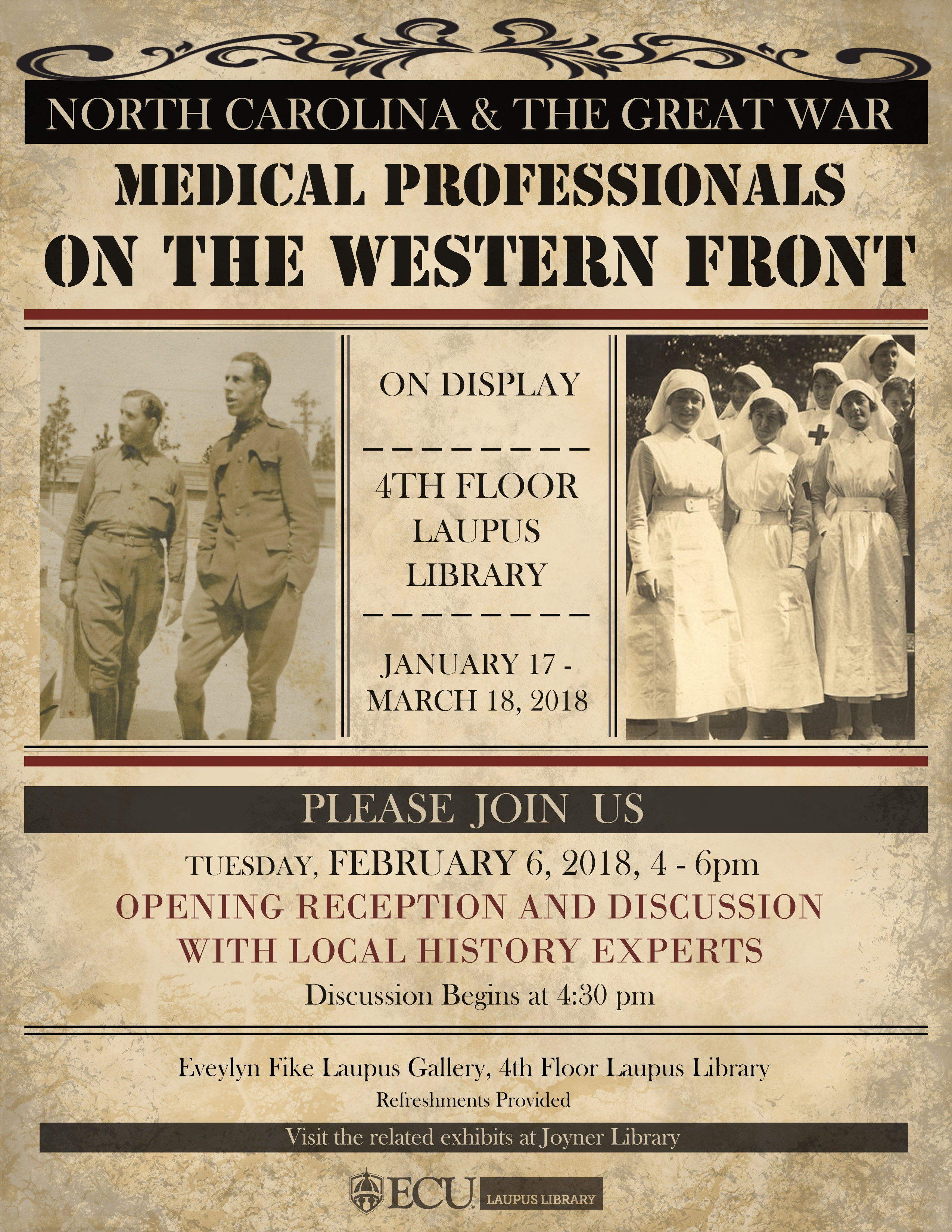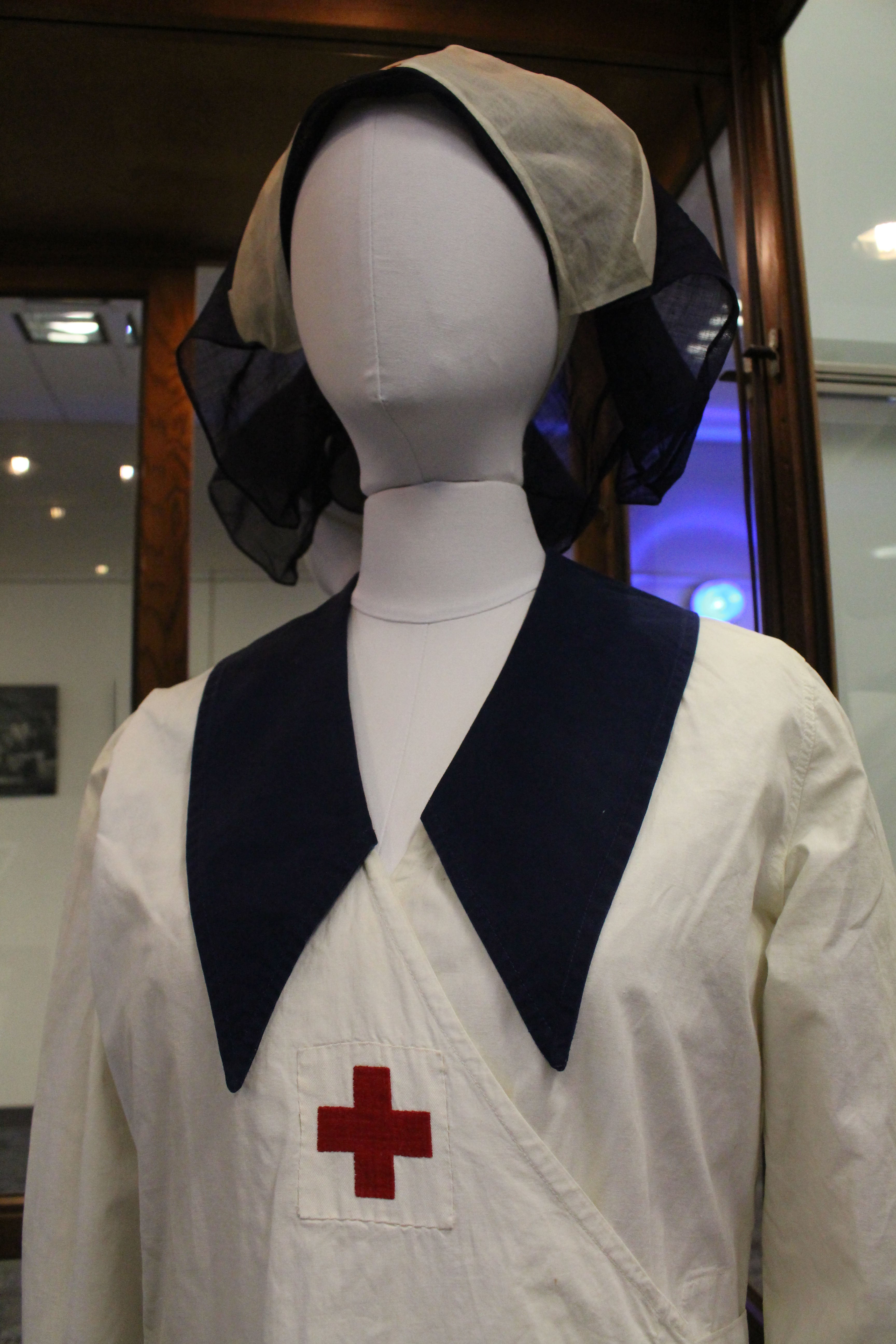Laupus offers a glimpse into the role of medical workers during war
Last year was the 100-year anniversary of the United States’ entry into World War I. Often called the Great War and the War to End All Wars because of the horrific death toll, World War I marked a major transformation in world politics, economics and industries. As warfare technology advanced, medical techniques improved in response.
Many North Carolinians offered their services to the war effort both at home and abroad. Doctors and nurses volunteered to treat the various ailments and injuries in military hospitals and on the battlefront.
Currently on exhibit through March 18 in the Evelyn Fike Laupus Gallery on the fourth floor of Laupus Library, “North Carolina & The Great War: Medical Professionals on the Western Front” offers insight into the work of medical professionals in the war, highlighting the roles of both men and women.
“Laupus Library hopes the exhibit will provide an understanding of medical care during the First World War,” said Layne Carpenter, Laupus Library history collections archivist. “Medical professionals faced many obstacles while on the front because they were treating wounds that they had never seen before.”
The exhibit will engage visitors with a display of artifacts, photographs and paper materials to learn about how the medical field responded to new weapon technology.
It features a section about the influenza epidemic of 1918. The worldwide epidemic had a deep impact in North Carolina and later inspired state officials to provide better health care for the state.

A Public Health Collection also is displayed along with a history on how the North Carolina Board of Health educated the public a century ago.
“The interpretative information in this exhibit is really phenomenal,” said Beth Ketterman, library director. “The flu pandemic occurring at the tail end of the war had a very immediate impact here in Pitt County. It’s enlightening to learn how our local community coped with that outbreak at a time when many providers were elsewhere dealing with wartime efforts.”
A reception will be held on Tuesday, Feb. 6 from 4-6 p.m. At 4:30 p.m., local historians will discuss the war’s influence in Pitt County specifically, including stories about local doctors and the influenza epidemic.
This event is free and open to the public. Refreshments will be provided.
For more information email hslhistmed@ecu.edu.
–by Kelly R. Dilda, University Communications

